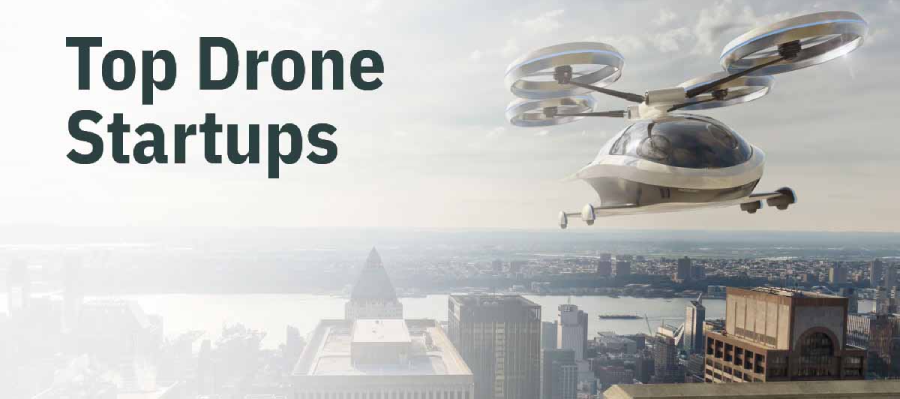Why Most Drone Companies Go Bankrupt - the Identity Crisis Behind the Tech

The story starts the same for almost everyone in the drone industry: awe. Maybe it was the sight of a quadcopter hovering effortlessly, a camera gimbal holding perfect stabilization mid-air, or a pilot navigating the sky with nothing but a set of joysticks and sharp thumbs. It’s all deeply compelling. The feeling that you’re staring at the future is hard to shake.
You’re hooked.
Then you discover what drones can actually do. It’s not just fun or futuristic—it’s practical, powerful, and deeply versatile. Drones can map wildfires in real-time. Deliver medical supplies like insulin to patients cut off by traffic or geography. Patrol borders, assist in replanting deforested landscapes, inspect utility lines and wind turbines without risking a human life. They can help a cinematographer in the morning and support a SWAT team by the afternoon.
And it clicks: drones aren’t just a product. They’re a gateway to almost every major industry—construction, agriculture, telecom, public safety, defense, logistics, even insurance and entertainment. If you have the mind of a builder or a generalist, it feels like a playground. The temptation to chase every opportunity at once becomes nearly irresistible.
But that’s also where most drone companies collapse—chasing too much, too quickly, and losing themselves in the process.
The Illusion of Opportunity
The drone industry feels infinite, and in some ways, it is. But the very openness of the space creates its own trap. Startups dive in excited, believing their product or idea can touch every vertical. They want to do it all: build custom drones, provide services, film, survey, deliver, and defend.
Within a year, they’re burnt out. Not because they lack technical expertise or passion. But because they misread the nature of the game.
What most of them miss is that drones, in themselves, aren’t the product. They’re just a tool. A medium. And if your entire business is built around “drones” as an identity, you're destined to become irrelevant the second the tool changes.
It’s the classic problem of confusing the gear with the mission.
Companies fail not because they didn’t build good drones, but because they failed to build around a purpose. They were trying to be everything to everyone, or simply anchored their identity to the novelty of the drone itself. They had pilots. They had technology. But they had no mission.
Why Identity Matters More Than Innovation
You might have a thousand interests—agriculture, public safety, autonomous flight, AI, camera systems, and so on. That’s not a weakness. In fact, it’s potential leverage. But only if your identity—the core of why you exist—is anchored to something bigger than any single interest.
If your brand is based on a specific drone model or even a specific use case, then every shift in regulation, hardware, or investor sentiment could take you down. The industry moves fast. Trends change. Funding dries up. New regulations drop overnight. Unless you’re anchored in something deeper than “we build cool drones,” you’ll get tossed around by every wave.
But when you have a mission—an unwavering, deeply personal purpose—it becomes a filter for everything. It tells you what opportunities to decline. It informs the customers you want to serve. It shapes your product roadmap, your partnerships, your hiring decisions.
Your mission isn't a marketing slogan. It’s not something that sounds good in pitch decks. It’s something you believe in so deeply that you’re willing to suffer for it.
“Protect frontline responders using unmanned systems that save lives.”
“Rebuild American industrial capacity through drone infrastructure.”
“Create sustainable, meaningful careers for veterans through unmanned aviation.”
These aren’t catchphrases. They’re battle cries. They repel the wrong people and attract the right ones. They turn your company into a system for solving real, high-stakes problems—not just selling gear.
Building Identity, Not Just Business
There’s a myth in entrepreneurship that your purpose will reveal itself one day, like a eureka moment. But in reality, identity isn’t found—it’s forged. It’s something you build day after day, through hard decisions, through setbacks, through repetition.
You build it by picking a single vertical and staying in it long enough to earn trust.
You build it by saying no to shiny, well-funded distractions.
You build it by letting your values show up in the contracts you walk away from, not just the ones you sign.
You build it when you fail publicly and still show up the next day because the mission didn’t go away.
Eventually, your company becomes an extension of that identity. Not just a logo, not just a brand name, but a platform to amplify your mission at scale. That’s the kind of business that lasts—not a drone company, but a purpose-driven system that uses drones as the delivery method.
The One Question That Matters
If you want to build something sustainable in this space, stop asking, “What kind of drone company should I start?” That’s the wrong question. The right one is: What mission am I willing to suffer for, regardless of how the tech evolves next year?
Because the tech will change. So will the markets, the regulations, and the buzzwords.
But the right mission? That endures.
So figure out what problem you were put here to solve.
Then use drones—use whatever tool you need—as your medium.
Your identity becomes the message.
And your mission becomes the amplifier.
Start there. The rest will follow.

.jpg)


